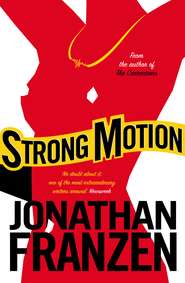По всем вопросам обращайтесь на: info@litportal.ru
(©) 2003-2024.
✖
The Kraus Project
Настройки чтения
Размер шрифта
Высота строк
Поля
Dreadful it will stand the test,
When come the proper day and hour;
You shall hear my voice at last,
The thunderous word, the weather’s power.
The wild storm on that day will cleave
Full many an oak tree tall,
Full many a palace wall will heave
And many a steeple fall!
These are empty promises. After all, what does Heine say about Platen?
In words, a splendid deed
That you intend to do someday!—
How well I know this breed
Who borrow time but do not pay.
Here is Rhodes, now come and show
Your art, this is your chance!
Or hold your tongue and go,
If today you cannot dance.
“A talent for thundering as well”—that sounds like journalism, doesn’t it? But from thunder not a sound and from the lightning only a twinkle. Only glimmerings, only the heat lightning of thoughts that went down somewhere or will sometime.
For just as an original thought need not always be new, so the person who has a new thought can easily have got it from someone else. This will remain a paradox for everyone except those who believe that thoughts are preformed, and that the creative individual is merely a chosen vessel, and that thoughts and poems existed before thinkers and poets—those who believe in the metaphysical way of thought, which is a miasma, whereas opinion is contagious, that is, it requires direct contact in order to be caught, in order to spread. Thus a creative head may say originally what somebody else has already said, and someone else may already be imitating a thought that won’t occur to the creative head until later. And it’s only in the rapture of linguistic conception that a world grows out of chaos. The subtlest illumination or shading of a thought, the tinting, the toning: only work like this goes truly unlost; no matter how pedantic, laughable, and meaningless it may seem at the time, it will eventually come to benefit the general public and yield, in the end, as a well-deserved harvest, those opinions that today are sold unripe with wanton greed. Everything that’s created remains as it was before it was created. The artist fetches it down from the heavens as a finished thing. Eternity has no beginning. Poetry or a joke: the act of creation lies between what’s self-evident and what is permanent.66 (#) Let there be light, again and again. It was already there and can reassemble itself from the spectrum. Science is spectral analysis: art is the synthesis of light. Thought is in the world, but it isn’t had. It’s refracted by the prism of material experience into elements of language; the artist binds them into a thought. A thought is a discovered thing, a recovered thing. And whoever goes looking for it is an honest finder; it belongs to him even if somebody before him has already found it.
In this and only in this way did Heine anticipate Nietzsche with the idea of a Nazarene type.67 (#) He demonstrates, with every word of his polemic against Platen, how far removed he was from the world of Eros and Christianity, which nevertheless shows up in his poem “Psyche” with such neat serendipity. In the transformations of Eros, Heine was able to see only the goal of experience, not the way of it; he applied ethical and aesthetic norms to it, and here, where we arrive at the border between the demonstrably true and the demonstrably silly, he anticipated not Nietzsche but the late Herr Maximilian Harden.68 (#) In the famous Platen polemic—which owes its fame solely to our pulp interest in the persons involved and to the even pulpier pleasure we get from the part under attack, and which would have to have destroyed Heine’s reputation if there existed in Germany a feeling for true polemical power instead of the mere carping of meanness—in this document, Heine chooses to make his erotic confession with the words:69 (#)
The one likes to eat onions, the other has more of a feeling for warm friendship, and I as an honest man must frankly confess that I like to eat onions, and a crooked female cook is dearer to me than the most beautiful friend of beauty.70 (#)
This isn’t gentlemanly, but it isn’t profound, either. He apparently had no concept of the diversity of sexual love, which confirms itself even in the things it rejects, and he crammed this wide world into the crude schema of man and woman, normal and abnormal. Indeed, even on his deathbed, the image that comes to hand is of the milkmaid who “kisses with thick lips and strongly smells of cow chips,” although here she’s only supposed to be more warming than fame, not warm friendship.71 (#) The person who understands the soul this way is a feuilletonist! Heine’s polemic is feuilletonistic in the disconnectedness with which opinion and wit run alongside each other. The outlook can reach no further than the humor can. A person who makes fun of his adversary’s sex life is incapable of rising to polemical power. And a person who ridicules his adversary’s poverty can make no better joke than this: Platen’s Oedipus would “not have been so biting if its author had had more to bite on.” Bad opinions can only make bad jokes. The play of wit and word, which compresses whole worlds of contrast onto the tiniest of surfaces and can therefore be the most valuable kind of play, must, in Heine’s hands, as in the hands of the dismal Saphir, become a slack pun, because there are no moral funds to underwrite it.72 (#) I believe he twice makes awful reference to somebody having a bad case of “melancolic.” Such coinages—as also, for example, his quotations from the “sownets” of Platen or his avowal that he and Rothschild have been on “famillionaire” terms—he naturally then blames on Hirsch-Hyacinth.73 (#) This from a polemicist who talks about his trusty Protestant kitchen hatchet! A hatchet that can’t even trim a sentence! The structural backbone of his attack on Börne consists of direct quotations from Börne, and every time he brings Börne out to speak you can detect quite precisely the point at which Börne stops and Heine’s own yakking takes over.74 (#) He does it in the heavy-handed porcelain story.75 (#) At every step, you want to revise, condense, deepen. “In addition to the passage of the Polish soldiers, I have characterized the occurrences in Rhenisch Bavaria as the next lever which, following the July Revolution, gave rise to the agitation in Germany and had the most profound influence even on our countrymen in Paris” is not a sentence I would have let stand. The parts without a frame; the whole without composition; that short-windedness that has to keep catching itself in a new paragraph, as if to say “So, and now let’s talk about something else.”76 (#) Had Heine been capable of aphorism (for which, indeed, the longest wind is needed), he could have made it through even a hundred pages of polemic. Of Börne, the ethically and intellectually rejected person who towers over the writer attacking him, he says, “In the end, all of his hostilities were nothing more than the petty jealousies that the little drummer boy feels for the great drum major—he envies me for the big plume that struts so boldly in the wind, and for my richly embroidered uniform, on which there’s more silver than he, the little drummer boy, could buy with his entire life savings, and for the skill with which I twirl my big baton, etc.” The skill is undeniable; and the drum major is also dead-on. Heine sees in Börne’s household “an immorality that disgusts” him; his “soul’s entire feeling for purity” bristles “at the thought of coming in the slightest contact with Börne’s immediate surroundings.” He has also wondered for the longest time whether Madame Wohl is Börne’s lover “or merely his wife.”77 (#) This perfectly fine joke is characteristic of the rootlessness78 (#) of Heine’s wit, for it pays off with the opposite of Heine’s notion of sexual morality. Heine would have to have been curious, in a straightforward bourgeois way, as to whether Madame Wohl was Börne’s wife or merely his lover. Indeed, on his deathbed he still sets great store by his avowal that he never touched a woman he knew was married. But there are yet more embarrassing contradictions in this piece. Jean Paul, for example, is called “the muddled polymath of Bayreuth,” while Heine says, of himself, that he has “planted in the literature of Europe monuments redounding to the eternal credit of the German Mind.”79 (#) The German Mind, however, would mainly like to escape with its life; and it will rise again only when the intellectual flood of filth in Germany has run its course: when people again begin to appreciate the mental labor of linguistically creative manliness80 (#) and to distinguish it from the learnable manual labor of linguistic ticklings. And will there then be anything left of Heine but his death?
The deathbed poetry, parts of Romancero, Lamentations, Lazarus: here he no doubt had the best of all helpers in raising his form to the level of genuine figuration. It took the experience of dying to make Heine a poet. It was a dictate: sing, bird, or die. Death is an even better helper than Paris; death in Paris, pain and homesickness, they do finally accomplish something authentic.
I hear the trot, the hooves beat near,
The dark rider comes to fetch me here—
He tears me away, from Mathilde I must part,
Oh, the thought will burst my heart!
This is a different poetry from the one whose success is proven in the account books. For Heine’s influence derives from the Book of Songs, not the Romancero, and if you want to judge the accomplishments by the man, you have to open the former, not the latter. Death concentrates, death clears away the trifling underworld-weariness81 (#) and lends pathos to the cynicism. Heine’s witticisms, so often just the dissonance of an unlyrical perspective, produce a higher harmony here. Compressed by its extinction, his wit finds more powerful fusions; and tasteless items such as “Get thee to a nunnery, dear child, or get thee a shave” become rarer.82 (#) The mot traditionally ascribed to him, “Dieu me pardonnera, c’est son métier,”83 (#) is perhaps, in its much-admired triteness, an invention of those who wanted Heine to remain true to his style to the end. But it suits the whole not badly. Both in belief and unbelief, Heine can’t rid himself of the imagery of commerce. Love itself says to the god of songs that “it demands guarantees,” and the god asks how many kisses Love will advance him against his golden lyre. And meanwhile Heine’s cynicism, this stale potpie of wit and woe, has become rather pleasing to the German palate, though the palate may not want to admit it. Compared with Offenbach, in whose orchestra the thousand-year misery is ringed by a dance of eternal delight, this ridiculer of misery looks like a trained Asra next to a born Bluebeard—to the kind that kills when it loves.84 (#)
… What does the lonely tear want?85 (#) What does a humor want which smiles through tears because both the strength to cry and the strength to laugh are lacking? But the “brilliance of language” isn’t lacking, and it runs in the family. And it’s uncanny how few people notice that it comes from chopped liver, and how many have spread it all over their household bread. Their noses are stuffed, their eyes are blind, but their ears are wide open to every hit song.86 (#) And so, thanks to Heine, the feuilleton has evolved to the highest level of perfection. There’s nothing to be done with an original, but copies can always be improved. When the imitators of Heine began to fear that somebody would expose them, all they had to do was become forgers of Heine, and they could go into mass production under his name. They take up a lot of space in the literature of Heine. But the experts who succeeded in exposing the fraud aren’t expert enough to realize that to expose the thief is to have exposed the owner.87 (#) He himself broke into the house with a skeleton key, leaving the door open behind him. He set a bad example for his successors. He taught them the trick. And the farther the trick spread, the more delicious it became. Thus the pieties of journalism demand that every editorial masthead today include at least a bedbug from Heine’s “mattress grave.” Every Sunday it creeps flatly through the columns and stinks the art out of our noses! But to be tricked out of a real life in this way is entertaining to us. In times that had time, art gave us one to resolve. In times that have the Times, form and content are split apart for faster understanding. Because we have no time, writers are obliged to say in many words what could have been succinctly put. So Heine really is the forerunner of modern nervous systems, praised by artists who fail to notice that the philistines have tolerated him a lot better than he tolerated philistines. For the philistines relent in their hatred of Heine when they take his poetry into account, while the artists take Heine’s hatred of philistines into account in order to rescue his personality. And so, eternally relevant because of a misunderstanding, he vindicates the pretty coinage “cosmopolite,” in which the cosmos reconciled itself to politics. Detlev von Liliencron had a merely provincial outlook. But it seems to me that he was more cosmic in Schleswig-Holstein than Heine was in the cosmos. In the end, the people who never came out of their province will go farther than the people who never came into one.88 (#)
What attracted Nietzsche to Heine—he had delusions of smallness when, in Ecce Homo, he wrote that his and Heine’s names would go down together through the centuries—must have been that hatred of Germany which embraces every ally it can find. But when you hold up the lazzarone as a cultural ideal alongside the German constable, there certainly seems to be nothing more German than such idealism, which takes a plagiarizing romanticism for something to be aspired to.89 (#) The intellectual problem of Heine, this refresher of German air, certainly should not be overlooked alongside the artistic problem of Heine: indeed, it runs alongside. And yet here, once, some oxygen was let into the room of Germany, and after a momentary improvement it tainted the air. That someone with nothing to say is better off saying it understandably: this perception was the relief for which Germany thanks its Heine after those difficult times when the people with something to say were all incomprehensible. And this undeniable piece of social progress has been attributed to art, since Germans are unshakable in their opinion that language is the means of expression common to both writers and speakers. With all due respect to Heine’s enlightening achievement, he wasn’t so great a satirist as to be deemed unworthy of a monument.90 (#) In fact, he was such a small satirist that the stupidity of his times has descended on posterity. Granted, this posterity builds itself the monument that it refuses to give him. But truly it also builds itself the one it wants for him. And if it doesn’t follow through with its monument, it at least leaves its calling card on Heine’s grave and reassures itself of its piety in the newspaper. As long as the secret balloting about his immortality continues, his immortality will continue, and when a nation of fraternity brothers has a problem, it won’t be making an end of it so soon. But the cultural subcommittee is manned by the Karpeleses and the Bartelses, and whichever way the decision finally falls, it won’t prove anything for the Mind.91 (#) The squalid all-in-due-courseness of this debate, the perennial timeliness of antiquated perspectives, is the perfect emblem for a literary phenomenon in which nothing is eternal but the personality type, which runs through time from nowhere. This type, who amazes his contemporaries by having more talent on their level than they do, has inflicted grievous damage on the art of language, which everyone who speaks believes he can understand.92 (#) We no longer recognize the personalities, and the personalities envy the technicians.93 (#) If Nietzsche admires Heine’s technique, then he is given the lie by every sentence he himself ever wrote. Except one: “You have attained mastery when you neither err nor hesitate in the execution.”94 (#) The converse of this shallow insight is the artist’s business. His achievement is scruples. He seizes, but, after seizing, he hesitates. Heine was a go-getter of the language; never did he cast his eyes down before her. Here is how his credo reads: “The axiom that we may know the character of an author from his style is not unconditionally correct; it is applicable merely to that mass of authors who depend upon momentary inspirations to guide their pens, and who obey the word more than they command it. With artistes, this axiom is inadmissible, for these are masters of the word, they manipulate it to whatever end they please, coin it according to their whim, write objectively, and their character does not betray itself in their style.” And that’s what he was: a talent, because no character; except he confused the artistes with the journalists.95 (#) As for the mass of authors who obey the word, they are unfortunately very few. These are the artists. Talent is what the others have: for it is a character defect. Here Heine utters his unconditional truth; he needs it against Börne. But since he writes objectively and, as a master of the word, manipulates it to whatever end he pleases, the opposite suits him against Platen. In Platen, “unlike the true poet, the language has never become master”; he has, “rather, become a master in the language, or, rather, on the language, like a virtuoso on an instrument.” Heine is objective. Against Börne: “The deeds of an author consist in words.” Against Platen: he calls his achievement “in words, a splendid deed”—“so entirely unfamiliar with the essence of poesy that he doesn’t even know that the word is a deed only for a rhetorician, whereas for a true poet the word is an event.”
Which was it for Heine? Neither deed nor event but intention or accident. Heine was a Moses who tapped his staff on the rocks of the German language. But speed isn’t sorcery, the water didn’t flow from the rock, he simply brought it up with his other hand; and it was eau de cologne.96 (#) Heine turned the miracle of linguistic creation into a magic act. He achieved as much as can be achieved with language; greater still is what can be created out of language. He could write a hundred pages, but he couldn’t shape the language of the hundred pages that weren’t written. When Iphigenie97 (#) begs for a kind parting word and the king says to her, “Farewell!” it’s as though leave were being taken for the first time in the world, and a “Farewell!” like this outweighs the Book of Songs and a hundred pages of Heine’s prose. The mystery of the birth of the old word was foreign to him.98 (#) The language was at his command. Yet never did she reduce him to silent ecstasy. Never did her favor force him to his knees. Never did he follow paths invisible to the profane reader’s eye, approaching the place where love first begins. Oh, the marrow-burning rapture of experiences in language! The danger of the word is the delight of thought. What turned the corner there? Not even seen and already loved! I plunge into this adventure.
NESTROY (#)1 (#)AND POSTERITY (#)
ON THE FIFTIETH ANNIVERSARY OF HIS DEATH
We cannot celebrate his memory the way a posterity ought to, by acknowledging a debt we’re called upon to honor, and so we want to celebrate his memory by confessing to a bankruptcy that dishonors us, we inhabitants of a time that has lost the capacity to be a posterity … How could the eternal Builder fail to learn from the experiences of this century? For as long as there have been geniuses, they’ve been placed into a time like temporary tenants, while the plaster was still drying; then they moved out and left things cozier for humanity. For as long as there have been engineers, however, the house has been getting less habitable. God have mercy on the development! Better that He not allow artists to be born than with the consolation that this future of ours will be better for their having lived before us. This world! Let it just try to feel like a posterity, and, at the insinuation that it owes its progress to a detour of the Mind, it will give out a laugh that seems to say: More Dentists Prefer Pepsodent. A laugh based on an idea of Roosevelt’s and orchestrated by Bernhard2 (#) Shaw. It’s the laugh that’s done with everything and is capable of anything. For the technicians have burned the bridges, and the future is: whatever follows automatically.3 (#) This velocity doesn’t realize that its achievement is important only in escaping itself. Present in body, repellent in spirit, perfect just the way they are, these times of ours are hoping to be overtaken by the times ahead, and hoping that the children, spawned by the union of sport and machine and nourished by newspaper, will be able to laugh even better then. There’s no scaring them; if a spirit comes along, the word is: we’ve already got everything we need. Science is set up to guarantee their hermetic isolation from anything from the beyond. Let art chase away their worries about which planet happens to be benefiting from the thoughts of the world anterior to them.4 (#) This thing that calls itself a world because it can tour itself in fifty days is finished as soon as it can do the math.5 (#) To look the question “What then?” resolutely in the eye, it still has the confidence to reckon with whatever doesn’t add up. It’s grateful to the authors who relieve it of the problem, whether by diversion or by dispute. But it has to curse the one—living or dead—whom it encounters as admonisher or spoilsport between business and success. And when cursing no longer suffices—because cursing implies reverence—it’s enough to forget. And the brain has barely an inkling that the day of the great drought has dawned. Then the last organ falls silent, but the last machine goes on humming until even it stands still, because its operator has forgotten the Word.6 (#) For the intellect didn’t understand that, in the absence of spirit, it could grow well enough within its own generation but would lose the ability to reproduce itself.7 (#) If two times two really is four, the way they say it is, it’s owing to the fact that Goethe wrote the poem “Stillness and Sea.” But now people know the product of two times two so exactly that in a hundred years they won’t be able to figure it out. Something that never before existed must have entered the world. An infernal machine of humanity.8 (#) An invention for shattering the Koh-i-noor to make its light accessible to everyone who doesn’t have it.9 (#) For fifty years now it’s been running, the machine into which the Mind is put in the front to emerge at the rear as print, diluting, distributing, destroying. The giver loses, the recipients are impoverished, and the middlemen make a living. A hybrid thing has settled in to subvert the values of life by turning them against each other. In the pestilential miasma of the intellect, art and mankind make their peace … A spirit who’s been dead for fifty years today, and who still isn’t alive, is the first victim of this festival of joy, about which reports by the column have appeared ever since. How it happened that a spirit like this was buried:10 (#) it could only be the enormous content of his satirical thinking, and I believe he continues to create. He, Johann Nestroy, cannot tolerate that everything he found intolerable remained in place. Posterity repeats his text and doesn’t recognize him; it doesn’t laugh with him, it laughs against him, it refutes and confirms his satire through the undying nature of the subject matter.11 (#) Unlike Heine, whose wit agrees with the world, who touched it where it wanted to be tickled, and whom it could always handle—the world won’t vanquish Nestroy the way it did Heine. It will do it the way the coward overcomes the strong man, by running away from him and getting a literary historian to spit on him. People will be ungrateful to Heine, they’ll enforce the laws of fashion against him, they won’t wear him anymore. But they’ll always say that he had wide horizons, that he was an emancipator, that he rubbed shoulders with statesmen and still had the presence of mind to write a love poem now and then. Not so Nestroy. No Kaddish will be said.12 (#) No Friedjung13 (#) will succeed in demonstrating that he had a political outlook, let alone the kind of outlook that turns a political outlook into an outlook in the first place. What mattered to him? So much, and therefore nothing of liberalism.14 (#) While the cobblers outside were fighting for the most ideal of wares, he was having his tailors sing lampoons.15 (#) He limited his partitioning of the world to small businessmen and landlords, to the up-and-coming and the down-and-out, to pensioners and unemployed porters. But that it was the world, not the editorial page, that he partitioned like this; that his wit was forever taking the road from social standing to humanity: conventional wisdom leafs past a chapter as incomprehensible as that.16 (#) Flashes on a narrow horizon—the heavens opening over a grocery store—are not enlightening. Nestroy’s thinking proceeded from social status into the world, Heine’s from the world into the state. And that is more.17 (#) Nestroy remains a joker because his jokes, which shot from the workbench to the stars, came from the workbench and we know nothing of the stars. An earthly politician says more to us than a cosmic buffoon. And since what matters to us is increasing our stores of conventional wisdom, we don’t mind if some earthly buffoons occasionally make Nestroy into a politician and force him to speak the kind of liberal precinct-opinion without which we can no longer conceive of a dead satirist. The phraseurs and riseurs are then happy to admit that he was a mockingbird and a cutup. And nevertheless, he was only cutting them down and blowing off their Calabrian hats.18 (#) And nevertheless, to those who condescend to art and grant it free play between the horizons—that is, from the individual nullity to the social quantity—let it be said with considerable certainty: If art is not what they conceive and condone but instead is the stretch from something seen to something thought—the shortest link from the gutter to the Milky Way—then there has never been a runner under the German sky like Nestroy. Never, it goes without saying, among those who brought the news, with laughing faces, that life is arranged in an ugly way.19 (#) We won’t deny credence to his message because it was a lampoon. Not even because, in his rush, he also sang something for the listener; because, in his contempt for the needs of the audience, he satisfied them, so that his thoughts could soar unhindered. Or because he swaddled his dynamite in cotton and blew up his world only after reinforcing its conviction that it was the best of all possible worlds, and because he laid on the soft soap of congeniality before he started slitting throats, and otherwise didn’t wish to inconvenience anyone. Nor, not being interested in honoring truth before spirit,20 (#) will we think less of him because he often, with the carelessness of an original who has more important things on his mind, took his cue from stagehands. The reproof that was leveled against Nestroy is sillier than any plotline he lifted from a French flunky, sillier than the printed look of any of those quodlibets that he used to toss to the people, who, then as now, won’t give humor a free pass unless they’re also given their hardy-har-har, and who, in those days, weren’t convinced they’d got their money’s worth unless they went home with a cheer for the assembled wedding guests.21 (#) He chose the routine, which had been born as a routine, in order to conceal his substance, which could never be a routine. That even the low theatrical effects here somehow contributed to the deeper meaning, by separating the audience from it—and that, again, there’s deeper meaning even in the fanfare with which the orchestra sends off philosophy—escapes the literary historians, who may well be capable of helping Nestroy to a political conviction, but not to the text that encompasses the immortal part of him.22 (#) He himself hadn’t bargained for this. He wrote on the fly, but he didn’t know the flight would extend beyond the repertoire. Although every Nestroyan line attests that he was capable of it, he didn’t have to withdraw into artistic self-discipline in the face of those who considered him nothing more than a humorist, and the milder jarring of his times denied his response the consciousness of its finality—that blessed incentive to seal revenge on the material in his enjoyment of form.23 (#) If he’d been born later, if he’d been born into these times of journalistic language fraud, he would have conscientiously repaid everything he owed to language. Times that retard the intellectual tempo of the masses incite their satirical counterpart. These times would have left him no time for as casual a prosecution of a bloody feud as the stage permits and insists on, and no orchestra would have been harmonious enough to resolve the dissonance between his nature and the world that grew up after it. His essence was the joke that runs counter to the stage effect, the flat onceness that has to be satisfied with finding a mate for the joke’s material and which, in its rhythmic salvo, hits the target before the thought.24 (#) On the stage, where politeness toward the audience parades around in the negligee of language, Nestroy’s wit could only be coined in the currency of rhetoric, which, far removed from the actor’s tools of characterization, was something again only he could pull off.25 (#) Fragmented times would have driven his essence to concentrate itself in aphorism and glosses, and the world’s more varied screechings would have introduced new cadences to his dialectic in its penetration to the core of the apparatus.26 (#) In his satire, one particular rhythm above all suffices as a winding post for the threads of an observation that is truly of the spirit. But sometimes a Nestroyan climax will look as if the terminologies of class feeling, perorating in succession, had arranged themselves as the steps of a Jacob’s ladder. These lively exponents of their professional point of view are always standing with one foot in their trade and the other in philosophy, and if their face is always changing, it’s really just a mask, because they have Nestroy’s one and only tongue, which has unleashed this sage torrent of words. Whatever else they may be, they are, above all, thinkers and speakers and are always in danger, on the public stage, of shortchanging their thought to save their breath. This utterly language-infatuated humor, in which word and sense capture each other, embrace, and hold each other entwined to the point of inseparability, indeed to the point of indistinguishability, stands above anything that a stage scene can communicate and therefore falls into the prompter’s box, in a way comparable only to Shakespeare, from whom you likewise have to remove Shakespeare before you can produce a theatrical effect—unless the mission of a stage character who begins to drone and rave without regard to anything going on behind him would be assured of applause by the oddness of such behavior. Odder yet, that the verbal and oral wit that he carries into his dialogue doesn’t impede his powers of characterization, of which there’s enough left over to outfit an entire dramatis personae and, even as it’s causing us to think, to fill the theater with concrete mood, gesture, suspense, and action. He borrows foreign subject matter. Where, though, is the German comedy writer who could borrow from him the power to create a character with three words and a milieu with three sentences? He’s all the more creative when he lifts foreign material into his own work. He goes about it differently than the better-known contemporary recaster Hofmannsthal, who strips the hides off honorable cadavers to inter questionable remains in them, and who would no doubt defend his serious professional work against comparison with an author of farces.27 (#) Like all superior readers, Herr von Hofmannsthal reduces the work to its material. Nestroy takes his material from where it was barely more than material, invents what he has found, and his achievement would be considerable even if it consisted only in the reconstruction of plots and in the whirl of reinvented situations—that is, only in the welcome opportunity to entertain the world and not in the voluntary compulsion to observe the world as well. But the higher Nestroy, the one who owes nothing to any foreign idea, is somebody who has only head and no figure, for whom a role is only a pretext for his text,28 (#) and in whom every word attains a fullness that surpasses character, even the one who stands there in the breadth of Scholzian29 (#) humor as the model of a basic type in the satellite theaters of Vienna.30 (#) It wasn’t Nestroy the actor but the costumed advocate of his satirical prerogative, the executor of his attacks, the spokesman for his own eloquence, who might have exerted that mysterious effect which, while its artistic origins have certainly never been understood, has come down to us as the center of a heroic age of theater. The theatrical form of Nestroy’s mind was bound to die out with his body, and the routine of its nimbleness, which we still here and there see popping up with virtuoso poise, is a costume borrowed illegitimately. In his farces, the lead role remains unfilled unless the expert in his greasepaint also happens to come by his satirical spirit. Only the fruitful comedy of his fuller secondary roles has found original successors, such as the actor Oskar Sachs,31 (#) whose style seems, in its vital composure, to descend from the classical Carltheater.32 (#) But as the origin and perfection of a popular type, an actorly creator such as Girardi, who stands on the margins of the empty scene offered by the stagecraft of the past decade, could surpass the theatrical value of Nestroy’s art, which had only to clothe its own fullness of thought.33 (#) This is why even a layman of the stage such as Herr Reinhardt could propose a Nestroy cycle to a Girardi.34 (#) In Girardi, the character thrives on the poverty of its textual support; with Nestroy it shrivels up on the wealth of the words. There’s so much literature in Nestroy that the theater balks, and he has to step in for the actor. He can do it because it’s a written art of acting.35 (#) In this proxyship for the actor, in this embodiment of what easily eludes the actual demands of theater, there lives today a spirit whose affinity with him can now and then be recognized in the very outlines of his personality: Frank Wedekind.36 (#) Here, too, there’s something overproductive, in which what’s organically lacking in the character is made up for with identification, and which mediates personally between confession and credibility.37 (#) The actor wrote for a poet a role with which the poet wouldn’t trust an actor. In Wedekind—leaving aside an example of linguistic-satirical lineage that means more to me personally—we’re presented with a monologuist for whom a seeming conventionality and casualness of scenic form likewise suffices for speaking past it, and singing past it, things that are truly new and essential. The kinship in the cadences of aperçus was pointed out once by the late critic Wilheim.38 (#) Cadence is that superficiality on which thoughts most rely, and there must somewhere be a common standpoint for observing the world when sentences are spoken that could just as well be Nestroy’s as Wedekind’s:
“She’s in her twentieth year now, was married three times, satisfied a colossal lot of lovers—sooner or later, the needs of her heart were bound to register.”39 (#)
A biographical comment like this would also be made, just as it is, by one of the Nestroyan bringers of thought if, with the same vault of antitheses, he could get himself over his beloved’s past. And in Earth Spirit40 (#) somebody could again come close to speaking the wonderful line that occurs in Nestroy:
“I seen an old gray horse once pullin’ a brick wagon. The future’s been weighin’ on my mind ever since.”41 (#)
But here, perhaps, the absolute Shakespearean quality of such a lightning illumination of a mental landscape is sublime beyond any modern comparison. It’s a line by which you’d like to reintroduce to the contemporary reader’s muddled eye what poetry is: a within fetched from a without, a perfect unity. Observed reality taken up in feeling, not massaged until it fits the feeling. It could be used to reveal the method of all poetastery, all feuilleton poetry, which looks around for a handy piece of the external world in order to dispose of a stock mood. The case of Heine breaks open and collapses on a sentence like this, for it offers the dead certainty that an old gray horse would start to muse: How good was my life before / This wagon must I pull today / O happy neighs of yore / You’ve gone, you’ve gone away! / But the wagon said, Don’t frown / It is an old refrain / Once the road starts going down / It never goes up again … And we’d be fully informed about the author’s mood, including the ironic resignation. With Nestroy, who wrote only rough couplet stanzas, you can detect passages in every farce where his purely poetic piloting of thought through the densest of materials—where more than the mind: the mind’s process of assimilation—becomes visible. It’s the advantage over beauty possessed by a face that’s changeable to the point of beauty. The coarser the material, the more penetrating the process. In satire, the linguistic demands are less easily questioned, and fraudulence more difficult, than in the kind of poetry that doesn’t bother earning the stars and for which distance isn’t a road but a rhyme. Satire is thus rightly the poetry of impediment, richly compensated for being the impediment of poetry. And how it has both together: of the ideal, the entire ideal, and distance as well! It is never polemical,42 (#) always creative, while counterfeit poetry is mere yea-saying, a contemptible appeal to the already available world. How satire is true symbolism, inferring a lost beauty from a found ugliness and setting up little images of meaning in place of global concepts! Counterfeit poetry, which takes weighty matters for granted, and counterfeit irony, which rejects weighty matters, have one and the same face, and a single wrinkle separates Heine’s lonely tear from Herr Shaw’s common laughter. But the joke is nasty to the smokestack because the joke affirms the sun. And acid wants the gleam, and the rust says it’s only corrosive.43 (#) Satire can perpetrate a disruption of religion to arrive at reverence. It inclines toward high emotion. Even in places where a given emotion is deployed like just another object from the outside world, so that satire’s contradiction can shimmer through.44 (#) Yes and No mix and multiply, and thought springs forth. A game, as unprincipled as love. The result of this perfect penetration, preservation, and intensification of polar tendencies: a Nestroyan tirade, a melody by Offenbach. Here someone’s rapture at a pastoral play is underscored by the very joke deriding it; there the caricature of someone’s pining moonlight love runs riot over parody and into transcendence. This is true high-spiritedness, for which nothing is profane.
“A real practical fanatic once told me that the dandiest thing is when there’s two lovers and one of them dies first and comes back to the other one as a ghost. I can just see it, when she’s sitting there at her garden window some flowery night, with moonlight playing all over her pearly tears, and it would be getting whiter and whiter behind the bushes, and that whiteness would be yours truly—completely spirit, not one speck of body, but with the bedsheet of eternity over my head all the same, on account of decency—I stretches out my arms to her, I points to a star in the sky, ‘there shall we be united,’ so to speak—she gets the itch for a heavenly rendezvous, and would you believe it, she casts off her earthly shackles and we go amalgamating and waffeting and pendulating into the azure-blue night sky…”
Inverted pathos presupposes emotion, and Nestroy’s wit always has the gravity that knew emotion in its better days. Like the wit of every true satirist, it rolls down the long alley toward where the Muses stand, to strike all nine of them. Nestroy the disputer is the disputatious catalogue of every feeling in the world.45 (#) The buffoon who was banished from the stage, but went on cracking jokes behind the tragic hero as he was leaving, seems fused with the hero for an epoch, amusing himself in a style that reaches into his own heart and, in a strangely suspended tone, almost like Jean Paul’s, sustains the joke that’s being perpetrated here with horror.
FRAU VON ZYPRESSENBURG: Is one’s father a hunter, too?—TITUS: No, he runs a quiet, solitary business in which resting is his only work; he lies fettered by a higher power, and yet he’s free and independent because he’s disposing of himself;—he’s dead.—FRAU VON ZYPRESSENBURG (aside): How profligately he uses twenty lofty words to say what can be said with one syllable. The man obviously has the makings of an author.
And it is the loftiest yet tersest paraphrasing of a monosyllabic condition, the way the words here play around death. This blurred emotionality, which Nestroy breathes into the most modest of his characters’ asides, has led literary historians to think that his wit is aimed at their noble impulses.46 (#) In truth, it’s aimed only at their phrases. Nestroy is the first German satirist in whom language forms thoughts about things. He liberates language from its lockjaw, and for every cliché it turns him a profit in thought. Indicative are such expressions as:
“Good thing I drownded my sorrows, or despair woulda driven me straightaway to drink.”
Or:
“The apples go over here! People got no idea how to organdize. They go mixin’ up apples and oranges like apples and oranges.”
Language is making fun of itself here. The cliché is driven back into the hypocritical convention that created it:
“All right, out with your decision, my sweet”—“But Herr von Lips, I really must first…”—“I understand, there can be no talk of refusing, but to say yes, you think some deliberation is in order.”
The cliché inverts itself into truth:
“I’ve shared adversity with you; it’s now my most sacred duty to stick with you in good times, too!”
Or, debased to neologism, the language of the upper classes is caricatured by language from the mouths of the unrefined:
















